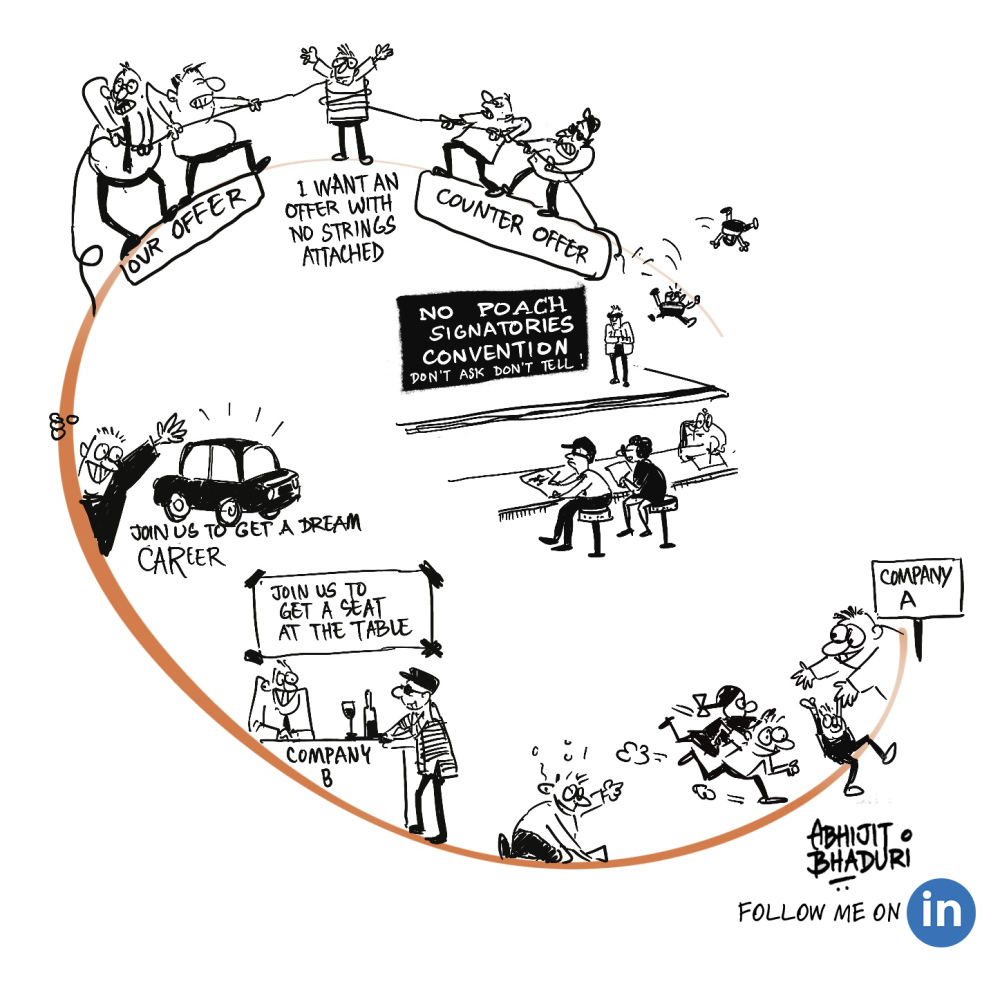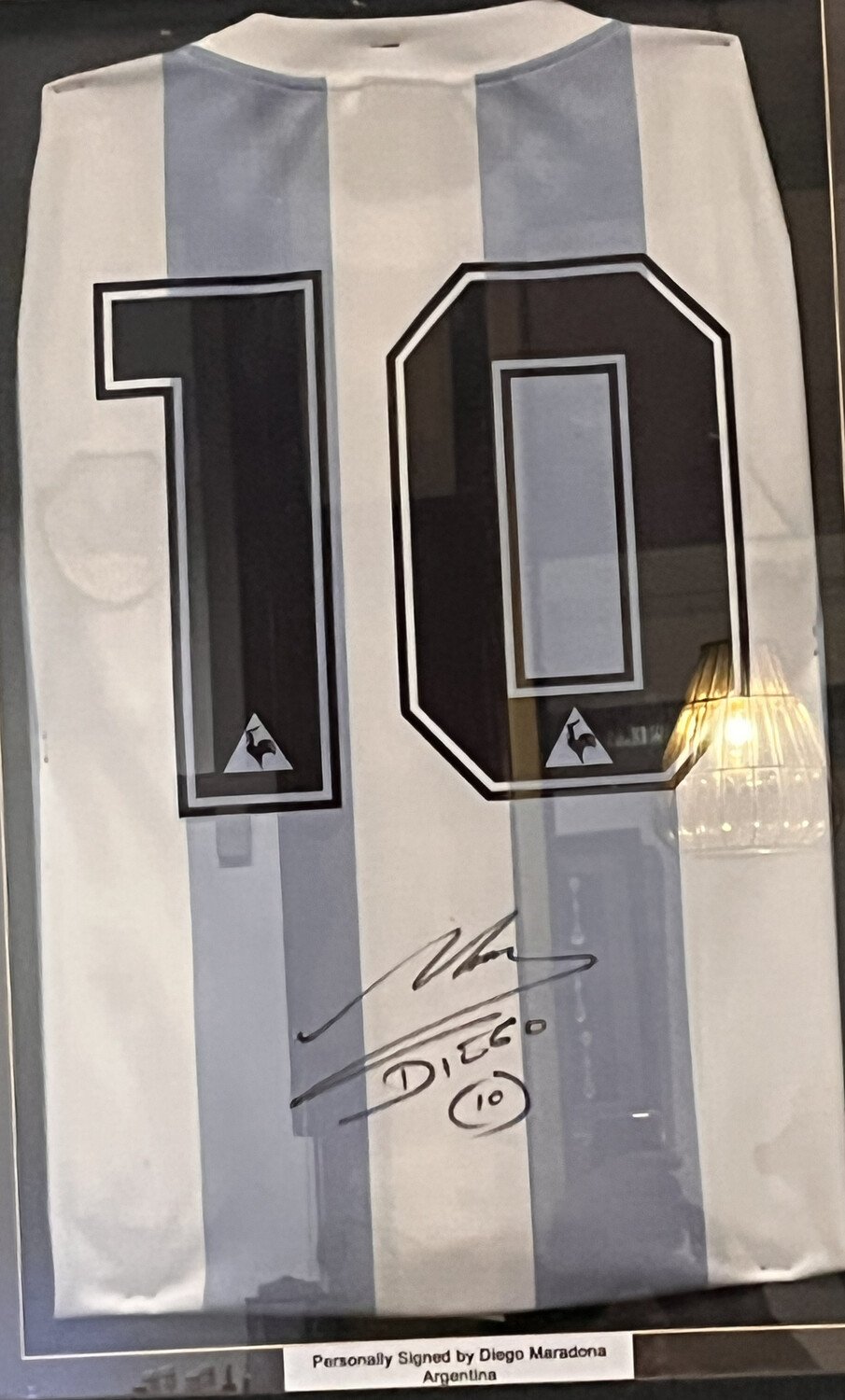No-Poach Agreements Don't Work - Here's What Works
Some of India’s top business houses have entered into informal pacts that prevent key managers from joining rivals. Recruiters are being told by companies to avoid poaching senior executives from direct competitors.
In the epic Mahabharata, the warrior king Arjuna vows to slay Jayadratha before sunset on the 14th day of the war. Jayadrath had killed Arjuna's son. The grief-stricken Arjuna said that he would immolate himself if Jayadrath lived past sunset. Krishna covered the sun with his divine powers and Jayadrath came out of hiding. At that moment Krishna made the sun reappear and Arjuna killed Jayadrath. Everything is fair in love and war, they say.
Do the rules of war apply to talent?
We do use the phrase, "war for talent"; but is it a war? No it is not.
Priyank Ahuja says, "Although such an agreement reduces the attrition rate within the organization, employees are dissatisfied and not happy with their current organization because they cannot switch their jobs with their direct competitors." <read more>
Life-long employment is a thing of the past: In the private sector, the people are free to join or leave any employer they wish to. The employers too let go of employees when their funds run dry. In the first half of 2022, more than 10,000 employees have been laid off by 27 startups, which includes unicorns such as Vedantu, Cars24, Ola, Meesho, MPL and Unacademy.
Skills go stale very quickly: Educational institutes are discovering that their curriculum starts decaying even as they offer new courses to address the market. People will have to take charge of their skills development. A drop in performance is red flag that the employers will not find you attractive.
Buy versus build is not a new problem: Employers like to bring in talent from competitors for many reasons. In competitive sports, the presence or absence of talented players can build or kill reputations. No matter how iron clad the contract is, we see that top talent always gets poached. So the clubs continuously coach and train upcoming players and build a talent pipeline.
What being in an ad agency taught me
In most industries, the top two or three keep poaching talent from each other and create a revolving door. As the HR Director for Mudra, a top notch ad agency, attrition was the biggest problem that the industry faced. Poaching talent was common.
One day, an Account Director announced that he was going to join our competitor. We were unhappy with his performance and so we were relieved when he decided to leave on his own. We quietly replaced him with someone who was working for the same competitor. Tit for tat, we thought. A week later, I met the hiring manager of the competitor at a conference. He came up to me and said that he was thankful that we had hired the Account Director they were planning to fire for poor performance!
Build the talent pool - there is no other way
It was the vision of the founders of Mudra that they decided to expand the pool of talent that all agencies could draw from. The result was the setting up of MICA, the School of Ideas India's Premier B-School for Marketing, Communication, and Creativity in a design-driven and digitally enabled world. (Full disclosure: I am on the MICA Governing Council)
It is a great idea to bring in people from other industries who can bring in new ideas. That should be no more than 20% of the top talent. The rest of the talent pool must be grown internally. Taking a bet in developing the employees is the biggest reassurance that they will get a chance to grow in the same organization.
A covert no-poach agreement is no different from price fixing. The leaders must make the strategic investments that they can sustain in the long run. Building talent is the way forward.
Do you think that developing talent is more ethical and sustainable way to win the talent war? Leave a comment and let me know.
Read the post from Mint Newspaper where Devina Sengupta talks about the covert no-poach agreements cutting across sectors. <read it>
Listen to this podcast where the author of the book The CEO Factory talks about the talent building strategy of Unilever





